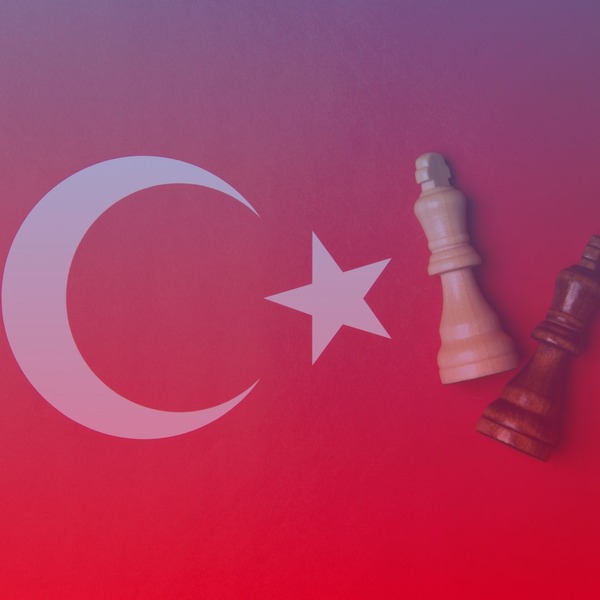
Written by Angelica Puntel
In June 2016, the European Union (EU) published its Global Strategy (EUGS), the sole security strategy published since the 2003 European Security Strategy (ESS). This document was a response to the complexity and interconnectivity of hybrid and cyber threats characterizing the international arena as well as the feeling of insecurity caused by the influx of migrants to the continent and the multiple terrorist threats. The debate about the international role of the European Union and its capacity as a security and defence provider for its members has been refreshed after the international events of the last two years and it will shape its political future for the years to come. The main aim of the EUGS was to offer the Union and its member states a guide, a set of norms and patterns of behaviour to navigate the complexities of today’s political arena by referring to specific blueprints (EU, 2016). In particular, according to the EUGS, “principled pragmatism” will guide the EU in today’s complex security environment: the values enshrined in the founding treaties of the EU ought to inspire its actions while a realistic evaluation of specific issues needs to precede every strategic decision (EU, 2016). This principle is anticipated by the Union to inspire the EU’s approach to the defence and security sector, where, guided by a strong sense of responsibility and aimed at fostering peace and at safeguarding “security within and beyond its borders,” the EU “will step up its contribution to Europe’s collective security” (EU, 2016, 8-19). In this sense, the EUGS demanded a European “strategic culture” to be shared by all members (EU, 2016). This strategic culture was supposed to be the foundation for the EU’s major aim, namely strategic autonomy, specifically in the security and defence sector (EU, 2016). However, in the current state of affairs, where power politics is re-shaping the international global order, the EU, far from having reached a common strategic culture, is dealing with member states with different strategic cultures.
The EUGS tried to answer the EU member states’ needs by laying the foundations of the Permanent Structured Cooperation (PESCO), which aims at defence cooperation, of the European Defence Fund (EDF) to finance research and capabilities initiatives, and of the Coordinated Annual Review on Defence (CARD) to coordinate planning. However, initiatives like the European Intervention Initiative (EII) and debates over the EU’s role in the security and defence sector show the difficulty of reconciling opinions under an EU banner. One event that has highlighted the difficulties in building trust and a unified strategic culture is Brexit. The French dilemma as to whether facing Brexit with a united EU front could be positive, as it may provide a basis for taking stronger steps in the security and defence sector, or negative, since the two nations share a similar more outward-looking strategic approach, underline the difficulty of finding a united front when it comes to strategic security and defence decisions (Tardy, 2017). This French predicament is of particular importance not only because France, together with Germany, is one of the leading EU powers, but also because France most closely shares its outward looking defence and security strategies with the United Kingdom; how France will react to Brexit then will influence considerably its position in regard EU policies. In particular, the Lancaster House Treaties (2010) and NATO will become the more important platforms for security and defence cooperation between France and the United Kingdom after Brexit, thus allowing France to count on a partner with a similar operational and outward-looking culture when EU policies do not reflect its national interest. Different EU regions also perceive threats differently: while the immigration issue is considered a leading concern by 39% of the population at an EU level and a defining issue for the next 2019 European elections, Southern flank states, bearing the brunt of the migration flow, push for greater cooperation whereas Eastern members states distance themselves from any role in its management (Standard Eurobarometer, Autumn 2017). Instead, Eastern states emphasise Russian aggression and the perceived US withdrawal from the EU and NATO as priorities.
If the EUGS attempt seems effective from an outside perspective, it is neither managing to silence or harmonize the different postures of EU member states, nor is it paving the way for strategic autonomy since different national needs have not been harmonized, as PESCO’s prominent German footprint points out (Gotkowska, 2018). This last feature certainty influenced the French desire for the out-of-EU framework EII.
What does ‘strategic culture’ mean though? Could it really be the answer to jointly lead the EU towards a shared future horizon and to surpass individual differences? The answers that international relations theories provide to these questions vary subject to their major tenets. The ‘strategic culture’ concept first arose within constructivist theory, but the more effective interpretation for explaining the current condition of the EU comes from the realist realm, as suggest by Stephen Walt, because it bases its evaluation on the premises of today’s power politics (Walt, 2018). Following the realist take on how powerful actors shape their surroundings, examining the national features and latest strategic decisions in terms of security and defence of France and Germany (leading powers of the EU) is fundamental to determining how their strategies affect the EU and if a shared strategic culture is the answer for a stronger Union.
Constructivism vs Realism
Strategic culture is defined by C.O. Meyer as “comprising the socially transmitted, identity-derived norms, ideas, and patterns of behaviour that are shared among a broad majority of actors and social groups within a given security community, which help to shape a ranked set of options for a community’s pursuit of security and defence goals” (2005:12). Strategic culture is generally seen by constructivists not as an independent variable, but a context in which actors of a security community like EU member states play, and by which they are influenced. How an actor relates to its counterparts and its surroundings is fundamental in shaping its own behaviour and in giving meaning to actions and discourses. This definition of strategic culture grants agents (states) the power to influence the structure (the whole security community) through social interactions. At the same time, it gives this structure the power to limit agents’ actions since the discourse of a specific actor needs to be accepted by others to have a meaning. A meaningful discourse is acknowledged because it follows the norms and the culture of the community and, consequently, has the ability to influence it. Social constructivism then focuses on how social interactions between member states transforms the social culture of their shared community daily (Lock, 2010:699-701). The exchanges of ideas and norms between the actors shape their common culture. Through repetition, these ideas become institutionalized as shared norms and behaviours that actors of the community have to follow in the future if they want their actions to have meaning and be recognized as such (Chebakova, 2008: 6-7). When applying this specific theoretical understanding of strategic culture to the EU, specifically to security and defence policies, the discourses of member states and their proposals for the Union to share analogous features would be expected to be similar. At this moment in time however, the evolution of proposals for the security and defence sector do not respond to the constructivist take on strategic culture where interactions between members should lead to harmonization of norms and policies; the projects proposed by Germany and France are different, and the different security priorities of the EU regions are prompting member states to look for national solutions. In addition, PESCO, which was a direct output of the EUGS, has a recognizable German footprint without fully considering French proposals.
If the constructivist interpretation fails to describe the current scenario by highlighting how all the actors of a community are powerful, and, in the particular case of the EU, how they should ideally come to harmonize the different ideas and needs of all EU regions, the realist eye focuses instead on the power-actors. Security, a perennial concern even for major powers, is always threatened and limited, and actors strive to obtain it while at the same time dealing with external factors, such as the power of other actors and their geopolitical position (Walt, 2018). Realism in this sense offers a key concept for the understanding of international affairs and geopolitics: power and its balance. The ability of country A to influence country B’s behaviour and to benefit from the results is one of the main characteristics of a powerful actor (Baldwin, 2013; Walt, 2018). Cooperation in an arena where powers struggle for their own security and are weary of others’ power is not unobtainable. Rather, it may be fundamental for the survival of a community. However, such an effort would need the interests of the actors to be recognized and at least partially aligned.
In an attempt to increase the potential for cooperation in the EU, the EUGS, contrary to the ESS, was shaped after an initial strategic assessment, a process of investigating countries’ specific needs, and an effort to convey them through a shared project (Tocci, 2016). However, was this process successful in creating a mean to harmonize needs, interests, and national cultures? As previously mentioned, this did not translate into the structure of PESCO. As realism suggests, in order to understand the trend surrounding security and defence issues, it is opportune to focus on the narratives and initiatives of the two leading EU powers: France and Germany. Thanks to their political influence and capabilities, these two members have the potential to drive the EU defence and security policies and to create a solid framework of cooperation.
The Leading Powers
The two major powers of the EU, France and Germany, are proponents of asymmetric views on intervention policies, multilateralism, the EU’s main threats (the volatile Southern neighbourhood versus the pressure from the US and an increasingly aggressive Russia), and on how the EU’s role should develop in the security and defence sector. If constructivism underlines how different views can be harmonized with time and practice and the EUGS highlights the importance of every nation’s input to create a shared culture, realism and the current scenario point out how the Eastern and Southern flanks are seemingly distancing themselves from Brussels’ decisions and how new, out-of-the-EU frameworks such as the EII are gaining momentum.
France and the European Intervention Initiative
In September 2017, French President Emmanuel Macron’s ‘Initiative for Europe’ speech at the Sorbonne laid out the French project for the EU, or more accurately for Europe, since it kept open the door for out-of-the-EU frameworks of cooperation. Macron’s speech first identified the main powers inside the EU by calling for a partnership between France and Germany, even if the tone was subdued due to the then recent German elections’ results. Second, Macron proposed a design for a strategically autonomous Europe (Macron, 2017). In order to reach this goal, he proposed three main ideas: a partnership with Germany, the utter need to reform EU security policy, and a two-speed EU. This speech and the French Strategic Review of Defence and National Security (October 2017) laid out the preferred French strategies for reaching the emancipation goal (called for also by the EUGS). The European Intervention Initiative (planned to be operational from 2020) is an out-of-the-EU framework solution, grounded on a European-oriented approach. This project answers three main national French needs and the slight frustration over what the EU achieved with PESCO, considered too weak a response to French perceived threats, too bureaucratic, and of little military use (Major and Mölling, 2017). Indeed, the EII, whose main aim is operational readiness, was inspired first by a specific national threat perception, namely the Southern neighbourhood, and secondly by a specific national strategic feature, the French predisposition to favour military objectives while developing its security and defence policies (Gotkowska, 2018; Major and Mölling, 2017). France wanted PESCO to use EU resources and platforms to support and deepen the military strength of member states and to be the primary crisis management response in the Southern neighbourhood (Gotkowska, 2018). Having not reached this target and lacking wide EU support for his vision, Macron outlined the EII. This platform will offer exclusivity (only partners truly engaged in defence), operational readiness, and opt-in chances for non-EU NATO countries, like Norway (Major and Mölling, 2017). Finally, France needs partners, as its military is overstretched and lacks funding and since Brexit deprived it of a major partner, a non-EU initiative could be the answer to continue a more outward looking and pragmatic defence cooperation (Major and Mölling, 2017).
Germany and the European Political Project
For Germany, where the use of military force is viewed negatively by the general public and seldom invoked, unlike in France, the quest for more cooperation in security and defence and PESCO is seen as a political integration project (Keohane, 2016). Still, after the US reprimanded member states’ financial commitment to the security of Europe, Germany wanted to prove its engagement and willingness to invest more in security cooperation and also showcase the strength of the Franco-German partnership. The tension between the need to do more regarding European ‘responsibilities’, particularly after Brexit, and a national culture of reservation surrounding the use of military force has severely influenced PESCO. Indeed, Germany declined the French demand for an EU military force as it would have led to the expansion of the Bundeswehr’s military involvement and would have bound Germany too tightly to the potential demands of this force. In addition, Germany was worried such a project would exclude the central European states (Gotkowska, 2018). Instead, Germany proposed to strengthen cooperation and deepen capabilities in non-combat areas, like logistics, thus confirming NATO as Europe’s and Germany’s primary security provider and avoiding any strong military commitment (EU, 2016). The Germans also see the CSDP as an integration process leading all members into a ‘European Defence and Security Union’. This view is disliked by the French, who instead consider this policy as the means to conduct complex military intervention operations and would to the contrary prefer the involvement of a small number of partners (Tardy, 2017). Finally, threat perceptions also differ: eastern developments are not considered major security threats in France, while the US’s latest posture on its engagement in European security and NATO do cause worry in German politics, so much so that EU strategic autonomy is being discussed (Keohane, 2016). The latest decision to back the EII diverges slightly from the usual German strategic posture and confirms how an actor adjusts its position depending on its perceptions of its own security and national interests: the German positive inclination towards the EII means coming to terms with the realities of the current geopolitical scenario. Just as France proposed the EII as an to answer specific national threat perceptions and needs, Germany, with its positive inclination toward this project, confirms the realist take on strategic culture. In other words, strategic positions adjust to changing security scenarios and threat perceptions. Thus, cooperation can be reached when a strategic convergence answers simultaneously the needs of different actors.
Conclusions
The main objective of the EUGS was to create a strategic culture to be shared by all member states in order to navigate the complexity of today’s global threats and power-politics challenges. However, this objective needs to recognize the varying threat perceptions and national security interests of each EU actor that regionally divide the Union. Its first output failed to do so. Trying to reconcile these differences within the EU and EUGS framework has proven to be difficult. In this context, realism recommends the EU to acknowledge the difference in national strategic approaches and to look for a framework that accommodates them, avoiding artificial structures that try to impose new norms and patterns without practice and time. In particular, before a rapprochement in policies, France and Germany need to work towards strategic convergence (Tardy, 2017). Germany’s decision to back the EII may be a step in this direction. Therefore, coming to terms with each member state’s national interests and finding a suitable framework of cooperation could save the EU from being both devalued and losing its political meaning. The feasibility of the European Union’s future security and defence policies will depend on how Germany and France – before anyone else – come to terms with their own national strategic cultures as they try to build a structure for cooperation that realistically encompasses their specificity and removes the need to opt for an out-of-EU framework.
Angelica Puntel is an Analysis Rapporteur at Oxford Analytica and was a Junior Research Fellow at the Centre for Geopolitics and Security in Realism Studies. She completed her Master of Science in International Relations at the University of Glasgow (2017) with a dissertation on the development of the EU’s strategic culture and on the relationship between EU and NATO; she holds a bachelor’s degree in International Sciences and Diplomatic Relations from the University of Trieste, Italy.
References:
- Baldwin, D.A. (2013) Power and International Relations. In Handbook of International Relations, eds.Walter Carlsnaes, Thomas Risse, and Beth A.Simmons. 2nd Ed. (Thousand Oaks, CA:SAGE Publications, 2013), pp.273-297.
- Chebakova, A. (2008) Theorizing the EU as a global actor: a constructivist approach. ECSA-Canada Biennial Conference, ‘The maturing European Union’. Edmonton, Alberta, pp.1-16.
- EU, (2003) European Security Strategy ‘A Secure Europe in a Better World’, pp.1-15, https://www.consilium.europa.eu/uedocs/cmsUpload/78367.pdf, last accessed, 30/04/2018
- EU, (2016) Shared vision, Common Action: a Stronger Europe. A Global Strategy for the European Union’s Foreign and Security Policy, pp.1-60, https://europa.eu/globalstrategy/en/shared-vision-common-action-stronger-europe, last accessed 30/04/2018.
- Gotkowska, J. (2018) The troubles with PESCO: the mirages of European defence. Centre for Eastern Studies, OSW, Point of View 69, pp.1-27.
- Keohane, D. (2016) Policy or project? France, Germany, and EU defence. Carnegie Europe, http://carnegieeurope.eu/strategiceurope/64222?lang=en, last accessed 29/05/2017.
- Lock, E. (2010) Refining strategic culture: return of the second generation. Review of International Studies, 36, pp.685-708.
- Macron, E. (2017) Initiative for Europe: Sorbonne speech of Emmanuel Macron. http://international.blogs.ouest-france.fr/archive/2017/09/29/macron-sorbonne-verbatim-europe-18583.html, last accessed 20/05/2018.
- Major, C. and Mölling, C. (2017) France moves from EU defence to European defence. Carnegie Europe, http://carnegieeurope.eu/strategiceurope/74944, last accessed 29/05/2017.
- Meyer, C.O. (2005) Convergence towards a European strategic culture? A constructivist framework for explaining changing norms. European Journal of International Relations, 11(4), pp.523-549.
- Ministry of Defence, France, (2017) Defence and National Security Strategic Review, https://www.defense.gouv.fr/layout/set/popup/content/download/520198/8733095/version/2/file/DEFENCE+AND+NATIONAL+SECURITY+STRATEGIC+REVIEW+2017.pdf, last accessed 15/06/2018.
- Standard Eurobarometer (2017), Public Opinion in the European Union – Requested by the European Commission, Directorate General for Communication (November 2017), http://ec.europa.eu/commfrontoffice/publicopinion/index.cfm/ResultDoc/download/DocumentKy/81148, last accessed 26/07/2018.
- Tardy, T. (2017) Europe and Defence: the vital yet fragile Franco-German couple. Foundation Robert Shuman, European Issue n°455, https://www.robert-schuman.eu/en/european-issues/0455-europe-and-defence-the-vital-yet-fragile-franco-german-couple, last accessed 25/06/2018.
- Tocci, N. (2016) The making of the EU Global Strategy. Contemporary Security Policy, 37(3), pp.461-472.
-
Walt, S.M. (May 2018) The world wants you to think like a realist. Foreign Policy, https://foreignpolicy.com/2018/05/30/the-world-wants-you-to-think-like-a-realist/, last accessed 25/06/2018.

 The ’Ndrangheta’s Infiltration and Threat to European Institutions
The ’Ndrangheta’s Infiltration and Threat to European Institutions  From Paper to Practice: How Grassroots Norms Undermine Gender Rights in Pakistan
From Paper to Practice: How Grassroots Norms Undermine Gender Rights in Pakistan  Exploited Childhoods: The Role of Global Corporations in Perpetuating and Mitigating Child Labour
Exploited Childhoods: The Role of Global Corporations in Perpetuating and Mitigating Child Labour  Human Rights Challenges in Addressing SLAPPs in Media, NGOs and Journalism in the EU
Human Rights Challenges in Addressing SLAPPs in Media, NGOs and Journalism in the EU 


